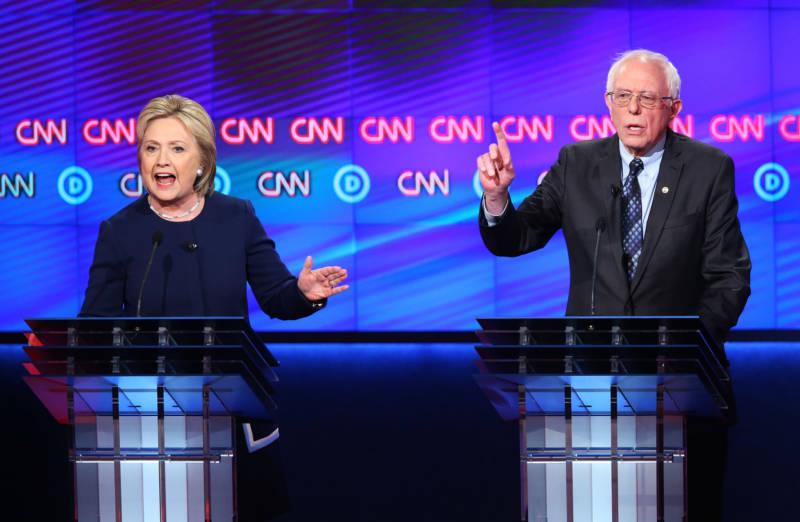Now, here's what the AP had to say when I contacted the news service Tuesday before I went out to vote. I boiled my question down to one issue only: Was there any internal discussion at The Associated Press about the timing of the announcement, coming as it did the day before several primaries?
"I can answer by saying we went with the news when we determined after months of ongoing, careful reporting that Hillary Clinton had indeed reached the required number of delegates for the nomination," Paul Colford, an AP vice president and its director of media relations, wrote in an email. "That conclusion was reached Monday evening. AP does not withhold news."
Colford ended by asking "Would KQED have held up such a story?"
Kathleen Carroll, AP's executive editor, explained AP's process for counting the delegates.
"Why did we report that Hillary Clinton had reached the number Monday night?" she wrote in an emailed response. "Because that is when the number of pledged delegates and the number of firmly committed super delegates reached 2,383, the required number. That was news and we reported it. With a lot of language that explained how we got there, that super delegates can change their minds and that none of those who pledged themselves to Clinton has done so in the many months that we have been talking with them."
And as to the question of a discussion about releasing its report with millions of people about to go to the polls, Carroll added, "We did not discuss whether we should sit on the news we had. We reported it."
In a sense, this is an issue that arises in every election, when news organizations receive early exit poll data that may point to the outcome of a race well before the polls close. It's a matter of convention at this point that media outlets keep that information to themselves until the votes are cast.
One difference: The "news" that Carroll and Colford refer to was the private, proprietary product of AP's work and isn't really open to public scrutiny. The wire service says that it discovered new superdelegate commitments on Monday that put Clinton over the top; the world is taking its word for it.
So, was this situation akin to the early release of an exit poll? Might the outcome of the race have been affected by an early call that the Democratic presidential nomination race was over?
Those questions are worth a conversation, anyway. And that would be my answer to Mr. Colford's question about whether KQED would have held up the story. Maybe, maybe not. But I'd expect a good, tough conversation before making the call.
